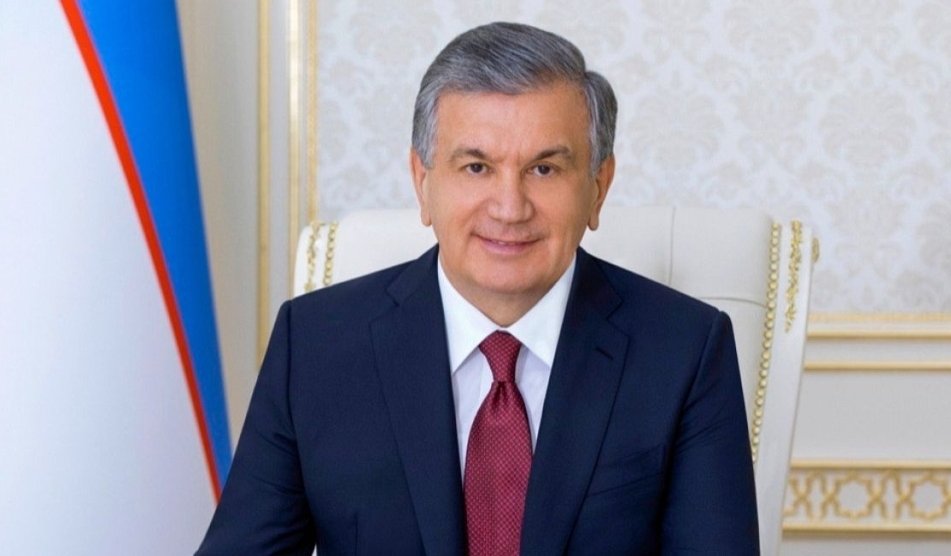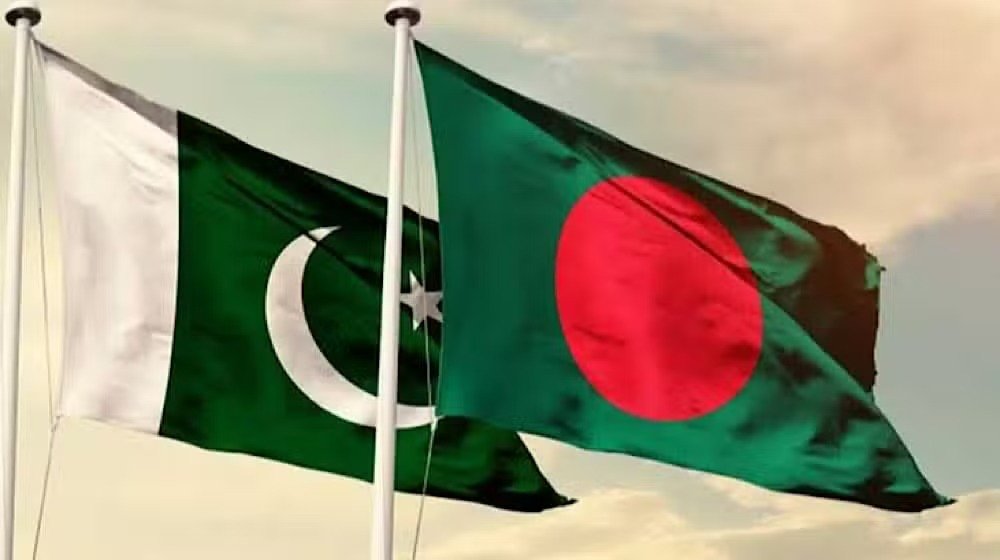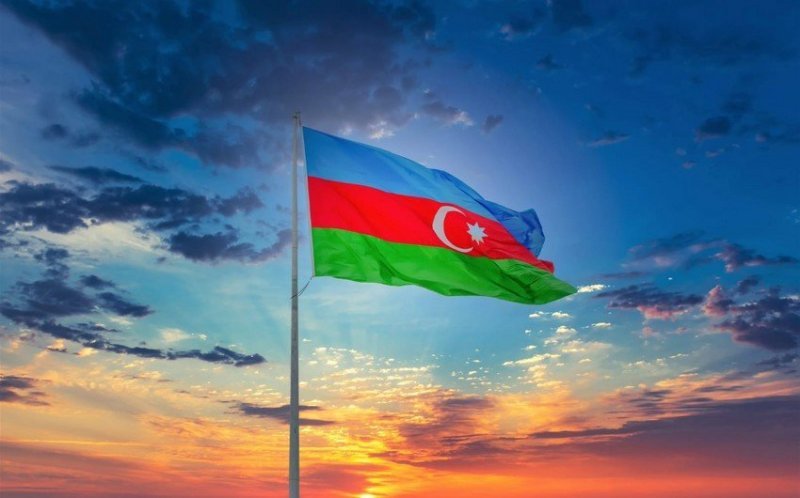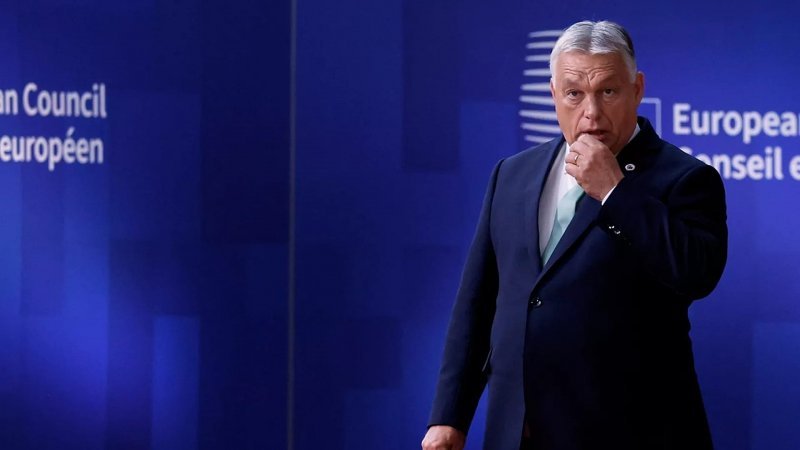The upcoming summit in Samarkand will be truly historic as it will bring together for the first time the leaders of the five Central Asian countries and the EU in one place, Uzbekistan President Shavkat Mirziyoyev said in a Euronews exclusive.
The Central Asia-EU summit in the historic Uzbekistan city of Samarkand marks a significant development in the relationship between Central Asia and the European Union.
This meeting comes at a time of global geopolitical instability, economic risks and climate challenges, which in turn means there is a need for new forms of international cooperation.
The summit aims to strengthen economic partnerships: with trade between Central Asia and the EU quadrupling over the past seven years, the summit seeks to build on this momentum and look for greater interregional cooperation while addressing joint challenges.
Euronews spoke to Uzbekistan President Shavkat Mirziyoyev about the summit’s goals and expectations, and the historical ties and shared interests between the two regions.
Euronews: In recent years, the world has been changing rapidly: geopolitical instability, growing economic risks, climate challenges – all this requires new formats of international cooperation.
In this context, the Central Asia-EU summit in Samarkand looks like a turning point in the relations between the two. Why is it now that interaction is reaching a new level?
Shavkat Mirziyoyev: Our regions are linked by deep historical roots, coinciding interests, and a common desire for close partnership. We have a clear vision of the agenda of interaction with the European Union, based on almost thirty years of cooperation.
Our partnership with the European Union is a two-way relationship from which both sides should benefit.
The Central Asia-European Union format of cooperation is a unique platform of interaction and is unparalleled in its scale and institutional scope. The European Union, which unites 27 states, including the three G7 countries (Germany, France and Italy), is the largest integration association building systemic interaction with Central Asia at the interregional level.
Cooperation with the EU covers a wide range of areas – from the economy and investment to sustainable development, security and digital transformation – and is based on long-term strategic priorities.
We regularly meet with our European colleagues. Visits to the region by leaders of the world’s leading countries have become noticeably more frequent. Uzbekistan has established a strategic partnership with Italy and France. Germany and the Central Asian countries have become regional strategic partners.
Today, the EU is consistently developing trade and investment ties with the Central Asian states.
Over the past seven years, the trade turnover between Central Asian countries and the EU has quadrupled, amounting to 54 billion euros.
We are pleased to see the growing interest of European businesses in the opportunities for trade and investment interaction with Uzbekistan and other countries of the region.
The positive processes observed in the region are increasing interest in Central Asia, turning the region into an important partner of world powers and leading states at the geopolitically important crossroads of the main routes between East and West, North and South. This is reflected in the “CA Plus” formats, which allow maintaining an open dialogue, creating favorable conditions for mutually beneficial cooperation of all stakeholders.
Under these conditions, the establishment of a strategic partnership between the countries of our region and the European Union during the summit in Samarkand will open new areas in the development of interregional cooperation and interconnectivity.
Euronews: Could you tell us more about the choice of Samarkand for holding the summit? What kind of symbolic value does it have in terms of dialogue and opportunities?
Mirziyoyev: Samarkand is a city that has been a centre of trade, science and diplomacy for centuries. Its glory was built on its ability to unite cultures, peoples and ideas. Today, it is once again becoming a platform where Europe and Central Asia can discuss the key challenges of our time.
Samarkand occupies a special place in the centuries-old history of international relations of the peoples living in the vast area of Central and South Asia and the Middle East. It was from here that Amir Temur, the ruler of Maverannahr more than six centuries ago, was in active contact with European monarchs to ensure free and safe trade.
At present, Samarkand is restoring its special role in international life, preserving and multiplying the historical political and diplomatic heritage of the country in a new, broader format.
Historically, the world from Samarkand is seen as one and indivisible, not divided. This is the essence of a unique phenomenon – the “Samarkand spirit”, based on which a fundamentally new format of international interaction is being constructed.
Euronews: How would you characterise the key changes that took place in the region in the past years, and what priorities do you set during the period of Uzbekistan’s chairmanship in the Central Asian Five?
Mirziyoyev: First of all, I would like to emphasise that Central Asia is the top priority in Uzbekistan’s foreign policy due to a number of factors. First, if we look at the political map of the modern world, it will become obvious that the overwhelming majority of armed conflicts, confrontations and outbreaks of violence take place between neighboring states. This applies to the Middle East, the post-Soviet space, South Asia, Africa and other regions of the world.
Unfortunately, Central Asia has not become an exception.
In different periods there have been armed clashes, the situation has been complicated by unresolved territorial disputes, water and energy problems, transportation and communication issues, as well as security challenges.
All this could not continue indefinitely. Contradictions were escalating, disagreements were deepening, and the emerging uneasy situation posed a serious threat to the security of the region.
Realising this situation, we made a strategic decision to build constructive, good-neighbourly and mutually beneficial relations with neighbouring states step by step in Central Asia. This approach is based on mutual trust and respect, consideration and recognition of common interests.
Central Asia has undergone a profound transformation in recent years and has acquired a new identity as a space of constructive dialogue, trust and comprehensive cooperation. This has become possible due to the common political will of the leaders of our countries, and today we can confidently speak about the irreversibility of this process.
When in 2017 at the 72nd session of the UN General Assembly Uzbekistan came up with the initiative to hold consultative meetings, we proceeded from a simple but important idea: no external partners would be able to help us build peace, stability and prosperity in the region if we ourselves do not start with a trusting and candid dialogue.
This process has proven to be effective. Today we are resolving the most complex issues at the negotiating table, coordinating joint initiatives and moving forward confidently.
This year, the 7th Consultative Meeting will be held in Tashkent. At such meetings we do not just discuss the agenda and “reconcile our clocks”, but make concrete decisions that change the face of the region. One of the brightest recent examples is the complete settlement of the issue of delimitation of the state border between Kyrgyzstan and Tajikistan. This is a breakthrough that the parties have been working towards for many years.
To stimulate trade, border trade zones are being created, joint investment funds are being launched, and major infrastructure and industrial projects are being implemented.
Central Asia is becoming an important link in global transportation chains. We are actively developing the Trans-Caspian and Trans-Afghan transport corridors, which will allow our countries to expand access to key global markets.
Thus, Central Asia is no longer on the margins of history, but is turning into a dynamically developing region that is shaping its own strategic agenda. Political consolidation, the achieved high level of trust and joint economic initiatives in the region have created new opportunities for sustainable development.
During its chairmanship of the Central Asian Five, Uzbekistan will pay special attention to three key areas: strengthening regional security, deepening economic integration and environmental sustainability.
We are facing a historic chance to make our region not only sustainable but also prosperous. I am convinced that by joint efforts we will be able to realise this potential.
Euronews: What reforms carried out in Uzbekistan stimulate the strengthening of economic partnership with the European Union, and what measures on the EU side can bring the links with Central Asia to a new level?
Mirziyoyev: In Uzbekistan, we are consistently creating a favourable business environment, developing market institutions, and improving the investment climate. Key steps in this direction include the introduction of a “one-stop-shop” system for foreign investors, the liberalisation of the foreign exchange market, and the reduction of the tax burden on businesses.
As a result, our country’s economic cooperation with the European Union has shown positive dynamics. In 2024, Uzbekistan’s trade turnover with EU countries reached $6.4 billion, increasing by 5.2% compared to the previous year.
More than 1,000 enterprises with European capital now operate in Uzbekistan, and the total volume of investment projects amounts to €30 billion. We anticipate that the signing of the Enhanced Partnership and Cooperation Agreement (EPCA) with the EU will open new opportunities for strengthening trade and investment ties.
We are ready to supply the EU market with a greater volume of high-quality, environmentally friendly products that meet the highest European standards. In the modern world, the development of efficient transport and logistics corridors is becoming increasingly important, and Central Asia can serve not only as a “bridge” between Europe and Asia but also as an active participant in global economic processes.
In this context, we propose aligning the EU’s Global Gateway strategy with key transport projects in our region, as well as jointly developing an Action Plan to advance the Trans-Caspian Transport Corridor. This will drive investment growth, infrastructure development, and the introduction of innovative technologies.
To elevate economic interconnectedness to a qualitatively new level, it is essential to further simplify trade procedures, improve access for Central Asian goods to European markets, and harmonise technical standards and certification processes. A crucial role is played by attracting European businesses to participate in infrastructure projects, developing the digital economy, and fostering innovation-driven cooperation.
We also support the activation of financial assistance mechanisms, including through the European Bank for Reconstruction and Development, the European Investment Bank, and other international financial institutions. Creating favourable conditions for the growth of small and medium-sized businesses in the region, with the participation of European partners, will help strengthen economic resilience and improve the standard of living for the population.
Euronews: Central Asia is one of the few regions with significant reserves of energy resources and vast potential for the development of renewable energy. What role can your region play in ensuring Europe’s energy stability, especially considering recent trends toward renewable energy sources?
Mirziyoyev: Central Asia can become a reliable partner, capable not only of ensuring stable energy supply but also of making a significant contribution to global decarbonisation.
A major area of cooperation lies in the ongoing project, involving Central Asian countries, to create a Green Strategic Corridor through the Caspian and Black Seas to Europe. The implementation of this initiative will lay a solid foundation for our mutually beneficial energy connectivity.
An important institutional platform for cooperation in renewable energy could be the establishment of a Central Asia-EU Clean
Energy Partnership. This initiative would facilitate collaboration on the production of green hydrogen, ammonia, and biofuels as sustainable alternatives to fossil fuels.
Currently, Uzbekistan and other countries in the region are actively expanding their renewable energy capacity. The implementation of green energy and climate projects will also support the development of a carbon credit market in Central Asia.
This mechanism will enable enterprises to attract investment in clean technologies while serving as a platform for international cooperation in carbon trading.
In addition to the 14 newly commissioned solar and wind power plants, we plan to implement more than 50 similar projects with a total capacity of 24,000 megawatts.
Over the next five years, we aim to increase the share of renewable energy sources to 54%. This will help reduce greenhouse gas emissions by nearly 16 million tons and contribute to Uzbekistan’s early fulfilment of its commitment to cut emissions by 35% under the Paris Agreement.
Another important focus is the modernisation of energy systems, which will enhance efficiency and reduce the carbon footprint.
Euronews: How do you assess the prospects of discussing security issues at the upcoming summit? What cooperation areas between Central Asia and the EU are of particular interest to you?
Mirziyoyev: We are witnessing a profound transformation of the international relations system. The world is undergoing large-scale changes, the consequences of which remain difficult to predict.
Ensuring regional security has always been and remains one of the highest priorities for the countries of Central Asia. That is why, in 2023, we set the goal of bringing a new agenda for Central Asia-EU cooperation in this field to expert discussions.
We recognise that our region and the European Union face common security threats and challenges, including the fight against terrorism, extremism, and transnational crime, such as drug trafficking. In this regard, cooperation with the European Union in the field of security is one of the key areas of our partnership.
Given current realities, we believe it is essential not only to continue collaboration within existing programs but also to develop new initiatives aimed at countering cyber threats and extremism.
Euronews: Afghanistan remains a key focus of Uzbekistan’s foreign policy. While many countries refrain from engaging with the interim government and integrating Afghanistan into regional and international cooperation, Uzbekistan actively interacts with its southern neighbour.
What drives Uzbekistan’s approach to Afghanistan, and what are the prospects for maintaining the high intensity of cooperation between our countries on this issue?
Mirziyoyev: Uzbekistan’s approach to Afghanistan has always been pragmatic and strategically oriented toward the long term. We have never isolated or turned away from our neighbour.
We have always believed that Afghanistan’s development is impossible without constructive engagement with neighbouring countries, including Uzbekistan as its closest and most important partner.
It must be acknowledged that many who initially disagreed with our policy on Afghanistan are now compelled to recognise its correctness and inevitability.
We were convinced that the previous regime in Afghanistan would not be able to maintain power due to several factors — its inability to establish full control over the country’s territory, its unwillingness to engage in dialogue with the opposition, its lack of intent to form an inclusive government, and widespread corruption that permeated all levels of the former administration.
The current leadership has managed to stabilise the situation in Afghanistan and redirect its resources toward infrastructure development, including airports, domestic railway networks, and water and energy facilities, as well as toward reducing opium cultivation.
According to UN data, following the Taliban’s 2023 ban on drug sales, opium cultivation in Afghanistan has decreased by 95%. Efforts are also being made to support rural communities and promote alternative agriculture to build a future for Afghanistan free from opium dependency.
In today’s context, Afghanistan should be viewed through the lens of emerging strategic opportunities. It is critically important to integrate Afghanistan into global economic processes, including through the implementation of infrastructure projects on its territory.
In this context, we are ready to work together with the European Union and other international partners to jointly promote a positive agenda and initiatives that will help Afghanistan not only to overcome the current crises but also to develop in the long term. The primary task at this stage, in our view, is to continue to provide assistance to Afghanistan in the field of education.
I am convinced that stabilising the situation in Afghanistan and its reconstruction are in the common interests of the Central Asian countries and the European Union.
Euronews: How can Central Asia and the EU jointly address climate threats and what are the opportunities for partnership?
Mirziyoyev: Climate change is a challenge that can no longer be ignored. Central Asia faces droughts, glacier melt, and water shortages, while Europe is experiencing extreme heat, wildfires, and ecosystem changes.
As one of the regions most vulnerable to climate change, Central
Asia recognises its responsibility and is ready to work with Europe on long-term solutions.
A key priority for us is advancing the green agenda in Central Asia. At the upcoming Samarkand Summit, we plan to present the Regional Green Development Concept, which aims to lay a solid foundation for effective regional partnerships in sustainable natural resource management and the adoption of green technologies.
We propose developing a Green Partnership between the EU and Central Asia, where we can join efforts to finance projects on renewable energy, ecosystem restoration, and digital climate monitoring.
Water conservation is another critical area where we see significant opportunities for partnership with the European Union, from modernising irrigation infrastructure to joint glacier monitoring and the introduction of advanced water-saving technologies. We also look forward to expanding cooperation with the EU, including through the adoption of European best practices in public-private partnerships.
Ecosystem restoration and biodiversity conservation are also key priorities. We have already launched the Green Belt of Central Asia
– a large-scale afforestation program aimed at restoring degraded lands, including in the Aral Sea region. We see great potential for collaboration with the EU in this field.
Additionally, we are committed to improving environmental education and advancing scientific research. Last year, we established the region’s first Green University, which can serve as an effective platform for joint research and the implementation of innovative solutions.
Euronews: Could you please share your expectations of the upcoming meeting at the highest level? What results would you like to see at the summit’s end?
Mirziyoyev: The upcoming summit will be truly historic as it will bring together for the first time the leaders of the five Central Asian countries and the EU in one place.
We expect that the upcoming summit will be an important milestone in the development of relations between Central Asia and the EU. In recent years, our interaction has reached a qualitatively new level.
We are counting on the deepening of political dialogue and the development of new mechanisms of interaction, which will make our cooperation more systematic and oriented towards long-term goals.
An important item on the agenda will be the discussion of interregional cooperation, especially in such areas as economy, trade, energy and transportation.
One of the key results of the summit will be the signing of the Samarkand Declaration, which will reflect the common aspiration of the parties to establish a strategic partnership.
This declaration will not only consolidate the agreements reached, but will also lay the foundation for deepening ties between our regions. We hope to reach concrete agreements on expanding investment cooperation, implementing joint infrastructure projects, supporting innovation and digital solutions.
Of course, many questions will be answered following the results of the summit. However, we can already say that this meeting will be a step towards creating a sustainable, mutually beneficial partnership between the European Union and Central Asia, based on common interests, trust and the desire for joint development.
Euronews: If you had an opportunity to send one message to the European leaders and their citizens, what would it be?
Mirziyoyev: I would like to take this opportunity to address our European partners.
Central Asia is open for dialogue and increased interaction. We advocate constructive cooperation based on the principles of mutual benefit and trust in the interests of sustainable development and improving the well-being of our people.
We highly appreciate the European Union’s support for our aspirations for the region’s openness, prosperity and strengthening of its subjectivity. It is particularly important that the EU shares our goal of transforming Central Asia into a united and dynamic region, ready for open and equal partnership with all stakeholders.
The upcoming summit will be an important milestone in our relations. We are convinced that the outcomes of the meeting in Samarkand will open up new prospects for further cooperation.
Published on 01/04/2025 – 9:57 GMT+2













